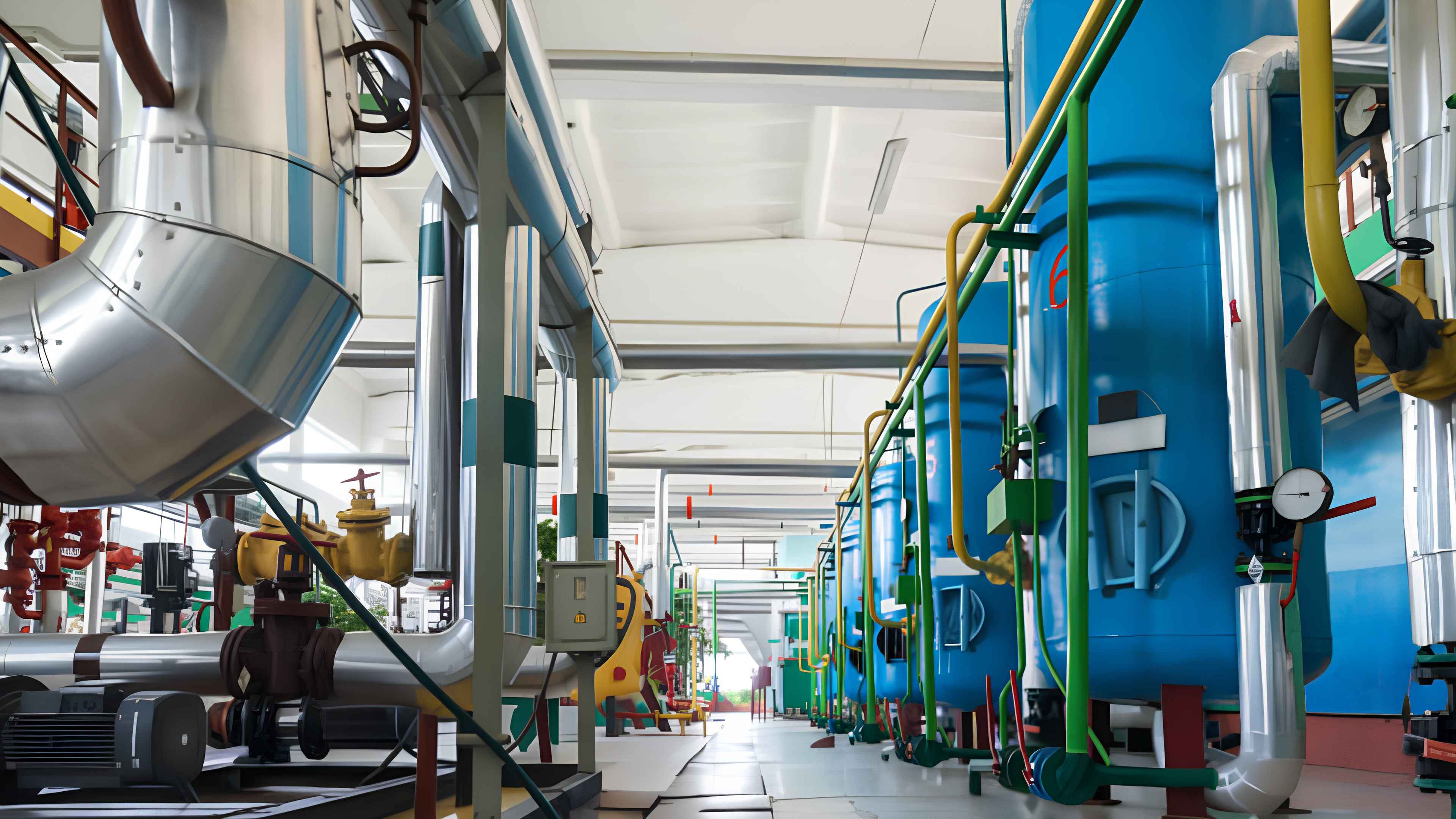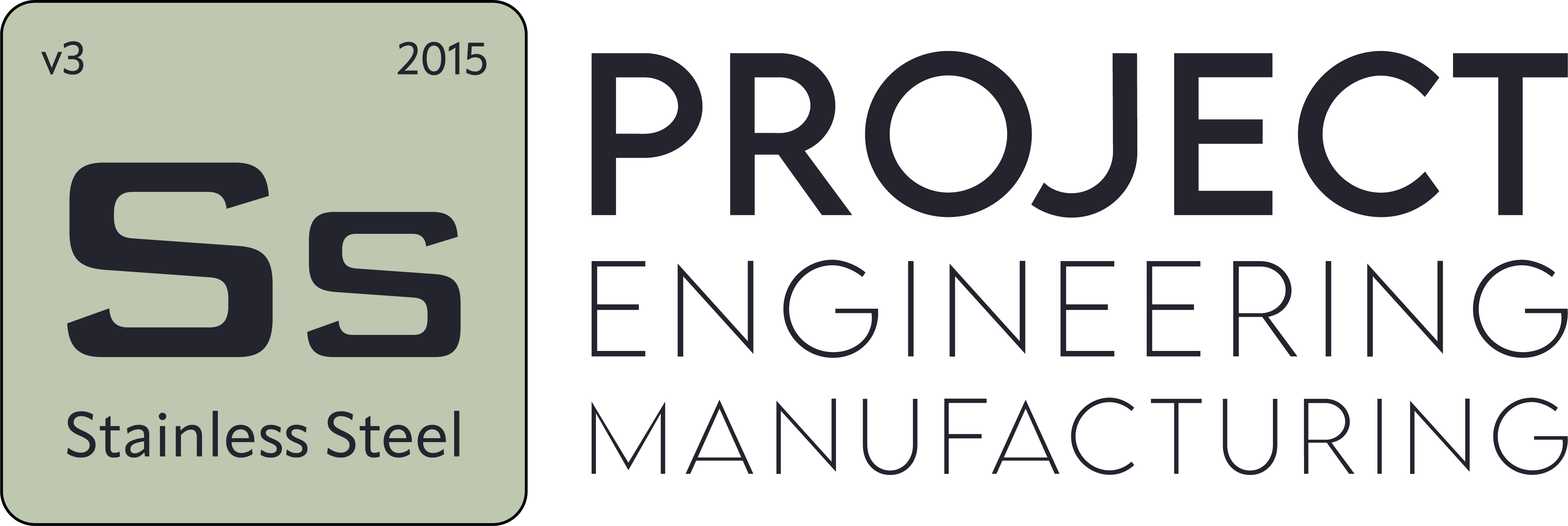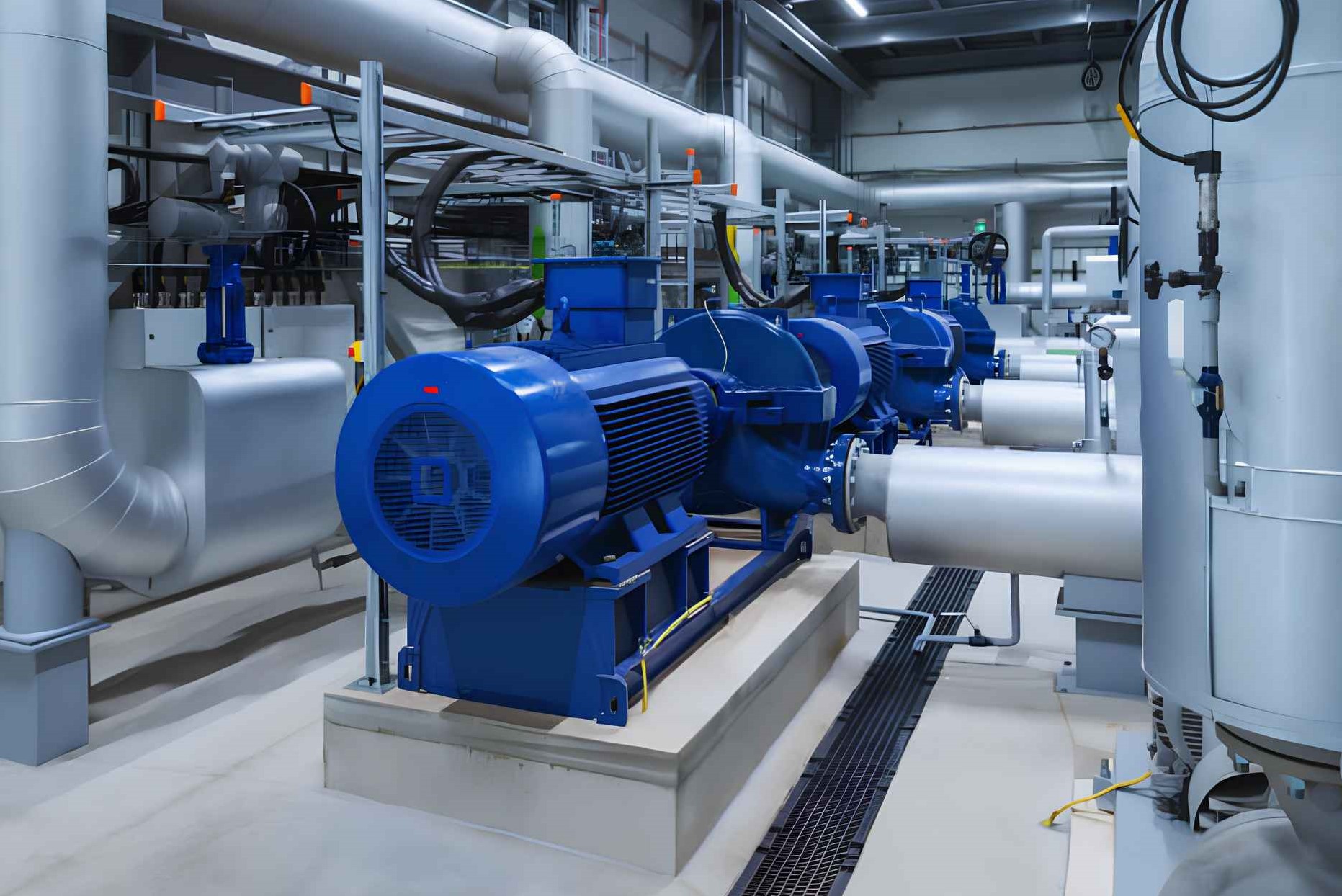Why You Should Choose a PW System?
- Blog
- Why You Should Choose a PW System?
Why You Should Choose a PW System?
Contents
- What are the advantages of the PW System?
- How Does PW System Work?
- In Which Sectors Is the PW System Used?
- How Can You Improve Your Production Processes with the PW System?
- What are the Cost Effects of the PW System?
- What Criteria Should You Pay Attention to When Choosing a PW System?
- What Health Standards Does the PW System Comply with?
- How to Save Water with PW System?
- What are the Environmental Benefits of Using a PW System?
- How to Increase Product Quality with PW System?
- What Are the Training and Support Needs for PW System Usage?
- How to Achieve Competitive Advantage with PW System?
What are the advantages of the PW System?
PW system is a system developed to purify water to high purity. Thanks to the methods used in water purification, high quality water is obtained, which is of critical importance in various industries. The most important advantage of this system is that it ensures the microbiological and chemical purity of the water. PW systems are indispensable to improve product quality, especially in the pharmaceutical, food and biotechnology sectors.
PW systems provide the opportunity to continue production processes uninterruptedly by providing a continuous water supply. Thanks to these systems, businesses can constantly monitor water quality, thus minimizing possible contamination risks. User-friendly interfaces allow easy control of the system. It offers cost advantages to businesses with low energy consumption.
As a result, PW systems not only improve water quality but also increase the operational efficiency of businesses. Therefore, choosing a PW system is a wise choice in terms of both ensuring cost efficiency and maintaining a high quality standard.
How Does PW System Work?
PW systems use a process sequence of several stages to purify water. First, water taken from the water source is subjected to physical and chemical pre-treatment processes. At this stage, large particles and pollutants in the water are removed. Then, membrane filtration techniques come into play to purify the water. In this process, water molecules are purified, passing out most of the harmful substances.
In the second stage, the water is further purified by reverse osmosis. This method ensures that high purity water is obtained by separating harmful substances from water. Finally, PW systems are completed with methods such as UV sterilization to ensure the microbiological safety of the water. This stage ensures that the water is cleared of pathogens and becomes hygienic.
These complex processes are supported by advanced control systems to constantly monitor the quality of the water. The PW system offers a water treatment solution that is both reliable and effective. All these stages allow obtaining high quality water, which has an important place in both the industry and healthcare sectors.
In Which Sectors Is the PW System Used?
PW systems can be used in different industries, offering a wide range of applications. Especially the pharmaceutical industry is one of the most common areas of use of PW systems. In pharmaceutical production, the quality of water is of critical importance for the effectiveness and safety of products. Thanks to PW systems, high purity water required in the production of pharmaceuticals can be provided.
In addition, PW systems play an important role in the food and beverage industry. The purity of water used in the preparation and processing of food products is vital for food safety. PW systems help food producers improve the quality of their products by providing high-quality water that complies with standards.
On the other hand, laboratories also benefit from PW systems. Water used in research and experiments must comply with certain quality standards. PW systems are widely used in laboratories to increase the reliability of analyses. As a result, PW systems offer a critically important solution in many industries such as healthcare, food and scientific research.

How Can You Improve Your Production Processes with the PW System?
The PW system offers many opportunities to improve production processes. First, improving water quality directly affects the quality of products. High-quality water reduces waste by increasing the effectiveness of products in the production process. This indirectly provides cost savings.
Thanks to PW systems, continuity of production processes is ensured. A constant and reliable water supply allows businesses to operate without interrupting production lines. This both prevents loss of time and ensures more efficient use of workforce. However, PW systems also contribute to businesses reducing their environmental impacts with low energy consumption.
PW systems also minimize human errors because they automate treatment processes. Automation enables continuous monitoring of water quality and allows immediate intervention. This feature makes production processes more reliable and increases overall efficiency. With the PW system, businesses can reduce their costs while increasing quality and sustainability.
What are the Cost Effects of the PW System?
The cost effects of the PW system offer various advantages to businesses in both the short and long term. Although initial investment costs may seem high at first, savings in the long run can offset these costs. PW systems provide continuous water supply, allowing production processes to continue uninterrupted. This provides significant cost advantages to businesses by minimizing production losses.
PW systems optimize the amount of energy used in water purification processes. Low energy consumption increases the profitability of businesses by reducing their energy costs. Additionally, saving water thanks to these systems further reduces the overall costs of businesses. Systems that prevent water waste also contribute to environmental sustainability.
PW systems increase customer satisfaction by improving product quality. Providing products that meet high quality standards increases the competitive advantage of businesses and helps them expand their market share. Therefore, PW systems add value to businesses by positively affecting not only costs but also overall business performance.
What Criteria Should You Pay Attention to When Choosing a PW System?
When choosing a PW system, it is important to consider several critical criteria. First, the water purification capacity of the system must match the needs of your business. A system with sufficient capacity ensures an uninterrupted flow of water supply. Therefore, the ability of the system to meet daily water needs is important.
Secondly, the energy efficiency of the system must be considered in terms of cost implications. Low energy consumption reduces your business's energy costs and contributes to your sustainability goals. The quality of the system's maintenance and support services should also be taken into account in the selection process. Quality maintenance services extend the life of the system and provide long-term cost savings.
The system's ease of use and automation features make the work of operators easier. While user-friendly interfaces simplify the management of the system, automation minimizes human errors. When choosing a PW system, paying attention to these criteria will allow you to find the best solution that will increase the efficiency of your business.
What Health Standards Does the PW System Comply with?
PW systems are designed to comply with health and safety standards. Water used especially in the pharmaceutical and food industries must comply with certain standards. Therefore, PW systems have been developed to meet the standards set by international health organizations such as Pharmacopoeias and FDA. These systems increase the safety of products by preventing microorganism contamination.
The design of the systems has been meticulously made to ensure hygienic treatment of water. Advanced filtration and sterilization methods increase the effectiveness of PW systems while ensuring the quality of the products. Therefore, PW systems help businesses comply with health standards.
Continuous quality control processes ensure water quality is monitored. These processes ensure that the water remains at consistently high standards. Therefore, PW systems not only improve product quality, but also provide businesses with a reliable solution by complying with health and safety standards.
How to Save Water with PW System?
The PW system uses various methods to save water. First, the system's purification processes ensure that water is purified from its source. In this way, waste of water is minimized. Advanced filtration methods are designed to use only the required amount of water. This helps businesses optimize their water consumption.
Secondly, PW systems increase water savings by offering the possibility of reuse. Purified water can be used in different applications. This feature allows businesses to manage water usage more effectively. Therefore, the PW system also contributes to environmental sustainability.
Automated monitoring systems constantly monitor water usage. This allows water to be managed effectively and prevents waste. Therefore, by using the PW system, businesses save water and reduce the environmental impact.
What are the Environmental Benefits of Using a PW System?
The environmental benefits of using a PW system are extensive. First, saving water helps manage water resources more sustainably. Especially in regions where water is scarce, PW systems allow efficient use of water. This helps preserve natural water resources.
Secondly, PW systems minimize environmental impacts by reducing energy consumption. Low energy requirements help businesses reduce their carbon footprint. This feature is a huge advantage for businesses looking to achieve sustainability goals. Production of high-quality water helps wastewater become less contaminated and therefore keep water resources cleaner.
PW systems make it easier to comply with environmental regulations. The use of these systems helps businesses achieve their goals of providing water that complies with environmental standards. Thus, PW systems contribute to businesses achieving their environmental sustainability goals.
How to Increase Product Quality with PW System?
PW system plays a critical role to improve product quality. First, the use of high purity water directly affects the effectiveness of products. Particularly in the pharmaceutical and food industries, water quality is critical to the safety and effectiveness of final products. PW systems help ensure this high quality standard.
Second, continuous quality control processes allow continuous monitoring of the quality of water. This ensures that product quality is kept at constantly high levels. Thanks to PW systems, contamination risks are minimized. This feature ensures customer satisfaction by increasing the security of the products.
The automation features of PW systems reduce operator errors and reliably control the quality of water. In this way, businesses have the opportunity to constantly maintain high quality standards. By using the PW system, businesses have the chance to improve their product quality.
What Are the Training and Support Needs for PW System Usage?
In order for PW systems to be used effectively, a certain training and support process is needed. First, users need to have knowledge about how the system works and how to manage it. Therefore, training programs provided by manufacturers help operators understand the features of the system.
Secondly, technical support for maintenance and repair of systems is important. Users must have a certain level of knowledge in order to maintain the system. This extends the life of the system and contributes to increasing efficiency. Providing a fast support service in case of malfunctions allows businesses to continue their uninterrupted operations.
The training and support process for the effective use of PW systems plays a critical role in increasing the efficiency of businesses. A good training program and technical support services help users make the most of the system's potential.
How to Achieve Competitive Advantage with PW System?
Using a PW system offers businesses many competitive advantages. First, the supply of high-quality water improves the quality of products. This helps businesses differentiate themselves in the market. Increasing customer satisfaction is an important advantage in a competitive market environment.
Secondly, PW systems ensure the continuity of production processes. This helps businesses deliver on time and meet customer demands. Continuous water supply minimizes production losses and increases overall efficiency. Thus, businesses gain competitive advantage by meeting customer demands more effectively.
Achieving environmental sustainability goals is an important competitive factor for many businesses today. PW systems reduce environmental impacts with low energy consumption and water savings. These features help businesses comply with environmental regulations while also strengthening their market image. By using the PW system, businesses have the opportunity to increase their competitive advantage.


